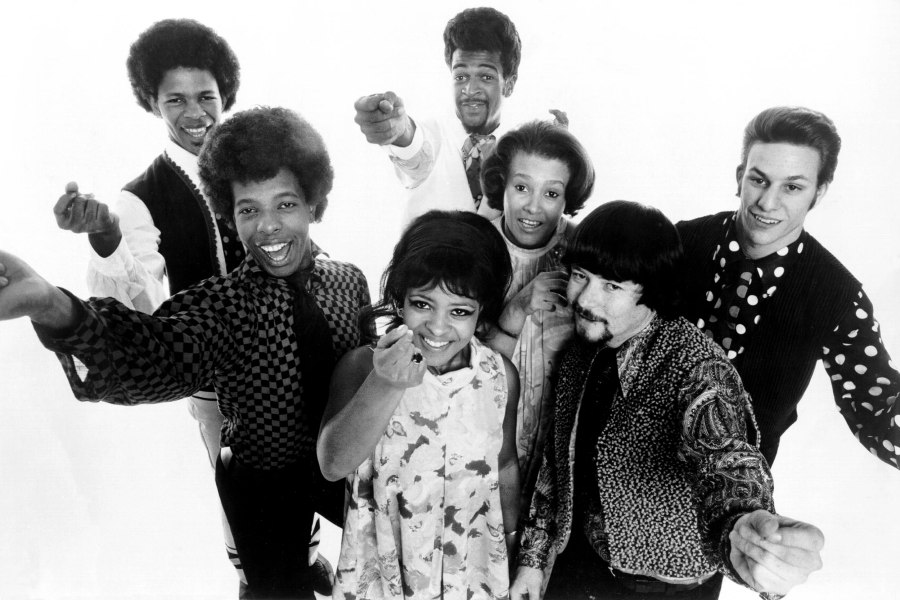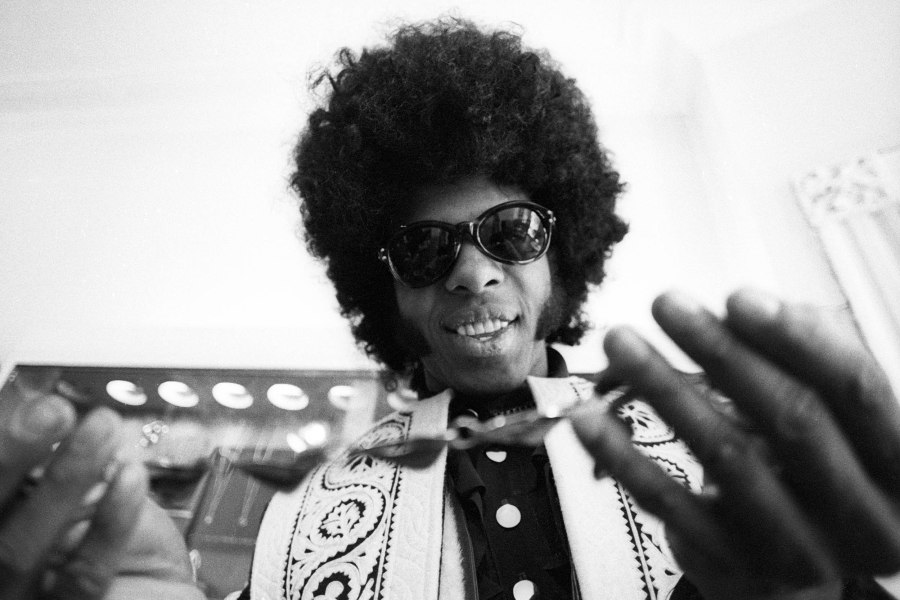Sly Stone, the legendary multi-instrumentalist who led the groundbreaking hit-machine Sly and the Family Stone, died Monday at 82, his family reported, “after a prolonged battle with COPD and other underlying health issues.” The statement went on to describe the Rock and Roll Hall of Fame inductee as “a monumental figure, a groundbreaking innovator, and a true pioneer who redefined the landscape of pop, funk, and rock music” whose “iconic songs have left an indelible mark on the world, and his influence remains undeniable.”
Official statements are often aimed at myth-making, but there’s no doubt Stone will be remembered as a towering figure in modern popular music.
Official statements are often aimed at myth-making, but there’s no doubt Stone will be remembered as a towering figure in modern popular music. Not just for the No. 1 singles “Everyday People,” “Family Affair” and “Thank You (Falettinme Be Mice Elf Agin),” but also for the interracial, multigender make-up of the band that performed those songs. With brother Freddie on guitar, sister Rose on vocals and keyboards, Cynthia Robinson on trumpet, Greg Errico on drums, Jerry Martini on saxophone and Larry Graham playing bass and singing, the Family Stone was the first mainstream group featuring Black and white, male and female musicians, and where the women weren’t limited to singing but also played instruments.

“There were race riots going on at the time,” Errico told me for Rolling Stone in 2015 of the era when the group was formed. “Putting a musical group together with male and female and Black and white, to us, it felt really natural and cool and comfortable, but it made a statement that was definitely threatening to some people.”
And Stone’s stunning fusion of soul and psychedelic rock, with ample helpings of jazz, gospel and Latin, were unlike anything audiences had heard. “He knew he wanted to mix all of these musical elements,” Errico added, “and he knew he wanted a mixed-race band.”
It led to an early career full of triumphs.
He was one of only three musicians from the 1960s — the other two being James Brown and Jimi Hendrix — that Miles Davis listed as an influence. The group’s performance before dawn on the second day of Woodstock in 1969, featuring the gospel-inspired “(I Want to Take You) Higher,” is widely celebrated as one of the most legendary moments of the legendary concert. And his 1971 album “There’s a Riot Goin’ On,” which reflected the fight for civil rights and Black power set against the waning idealism of the Vietnam generation, was created by Stone almost completely by himself, and is rightly regarded as one of the greatest albums of the last century.

“There were moments that made my hair stand up, where the stage lifted off like a 747 and flew,” Errico told me of the group and the sound its mastermind created.
According to Stone’s 2023 memoir, in the 1970s, cocaine gradually sapped his creative spirit and eventually his ability to even show up to work. He later developed a relentless crack addiction, and experienced long wilderness years of drug busts and one mental health crisis after another.












